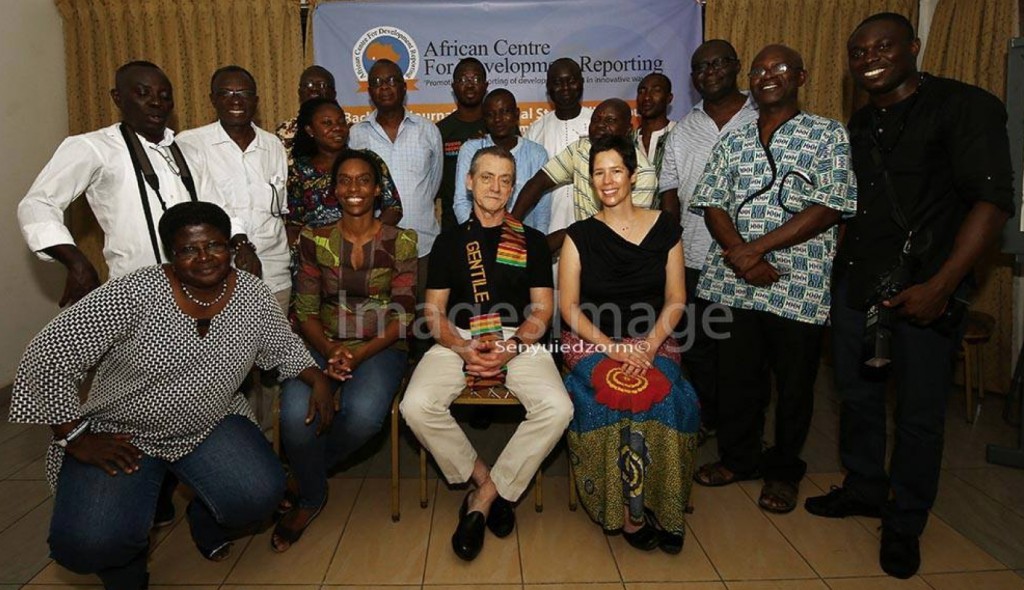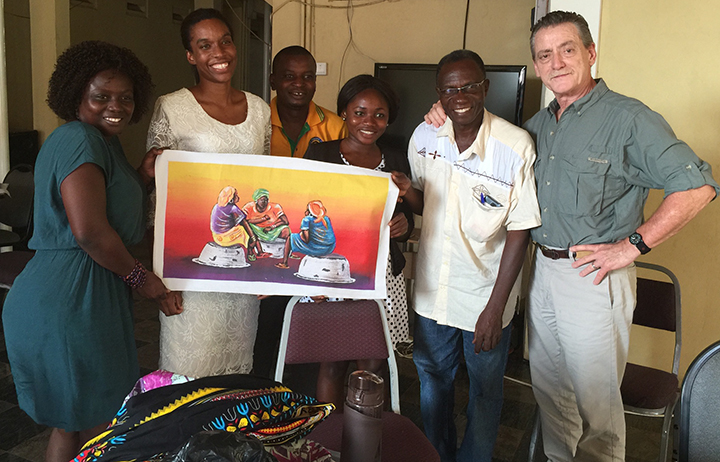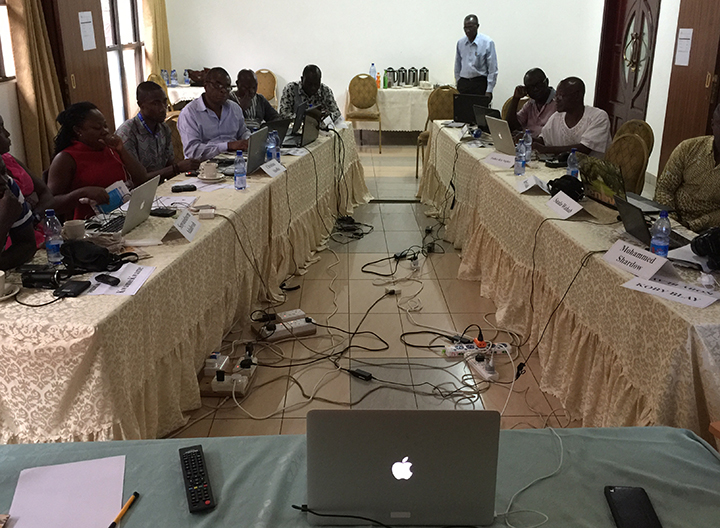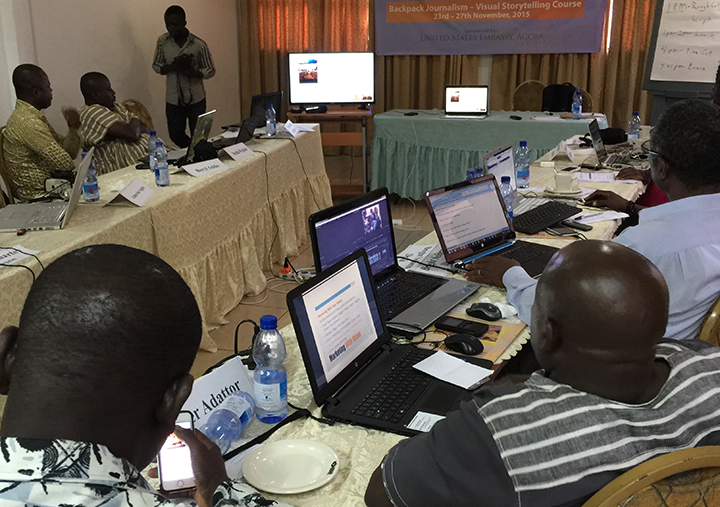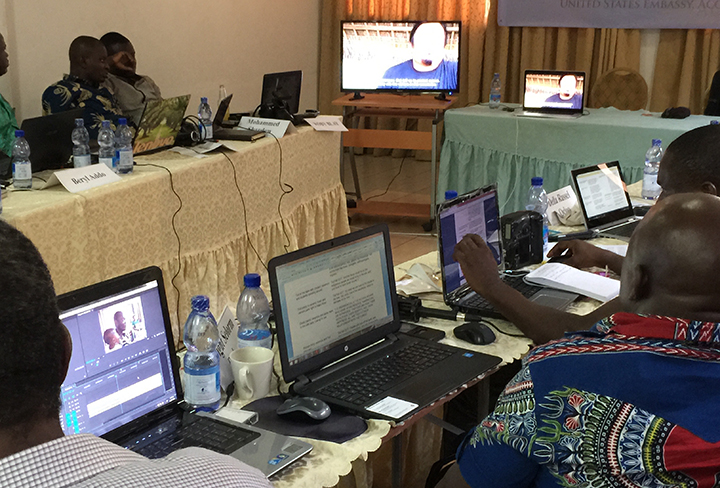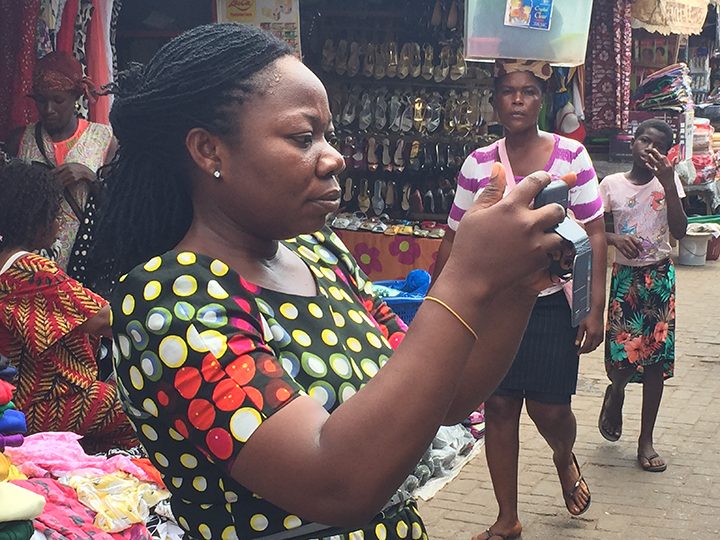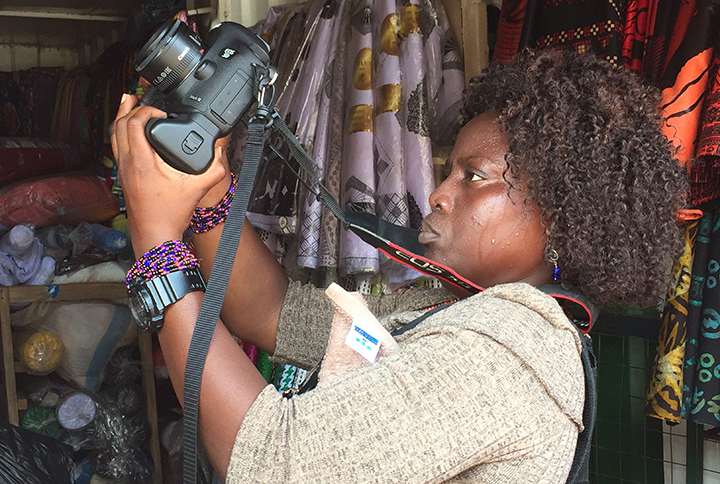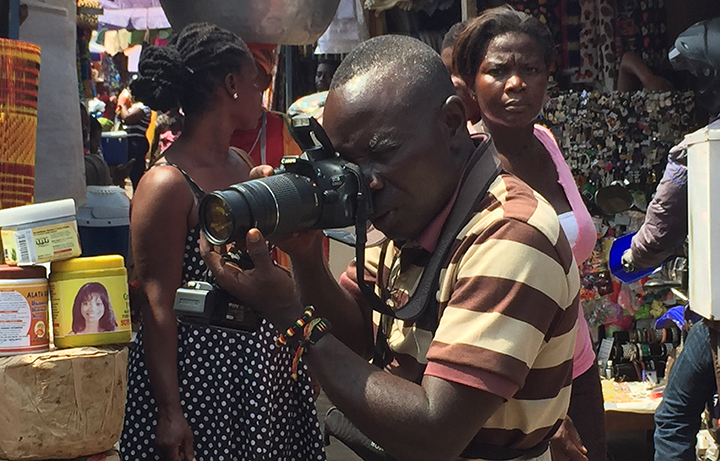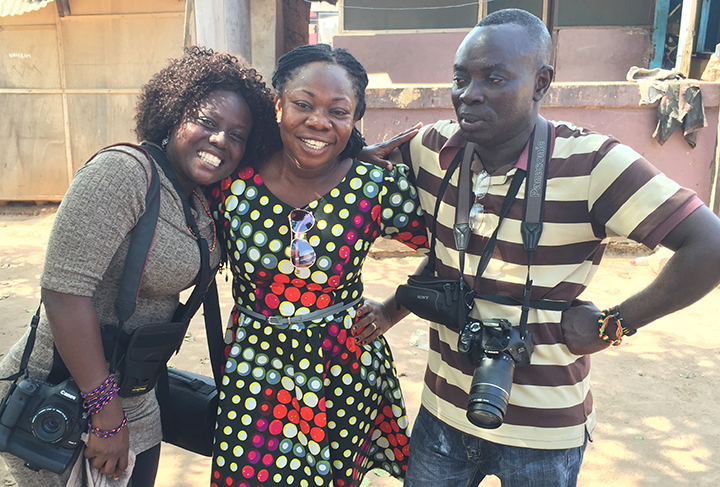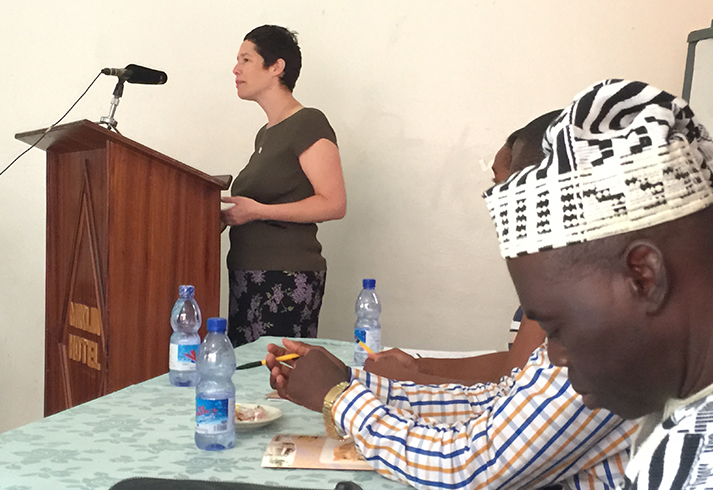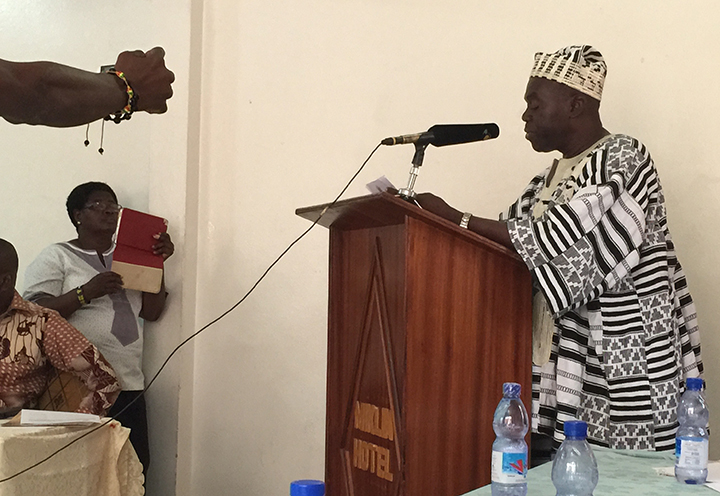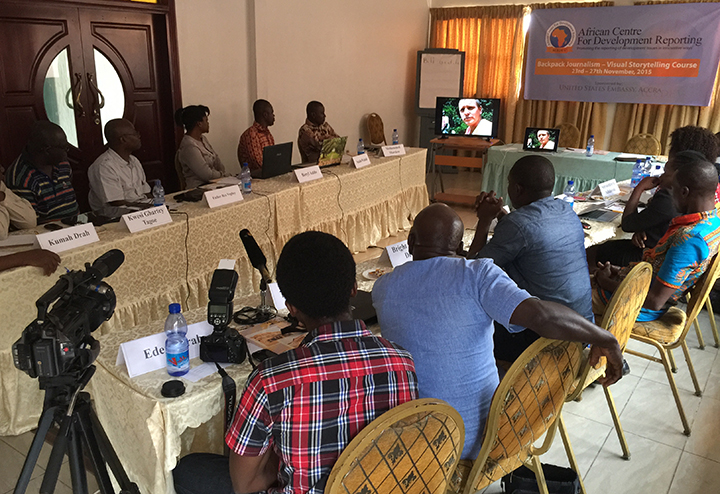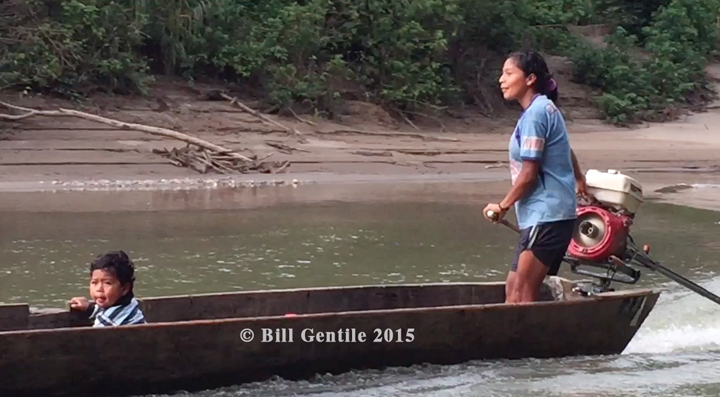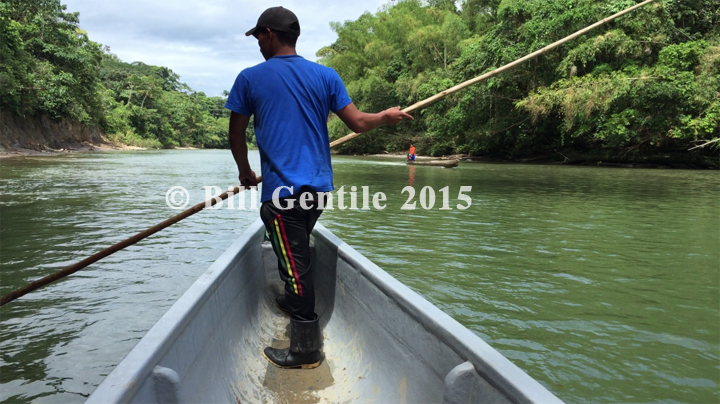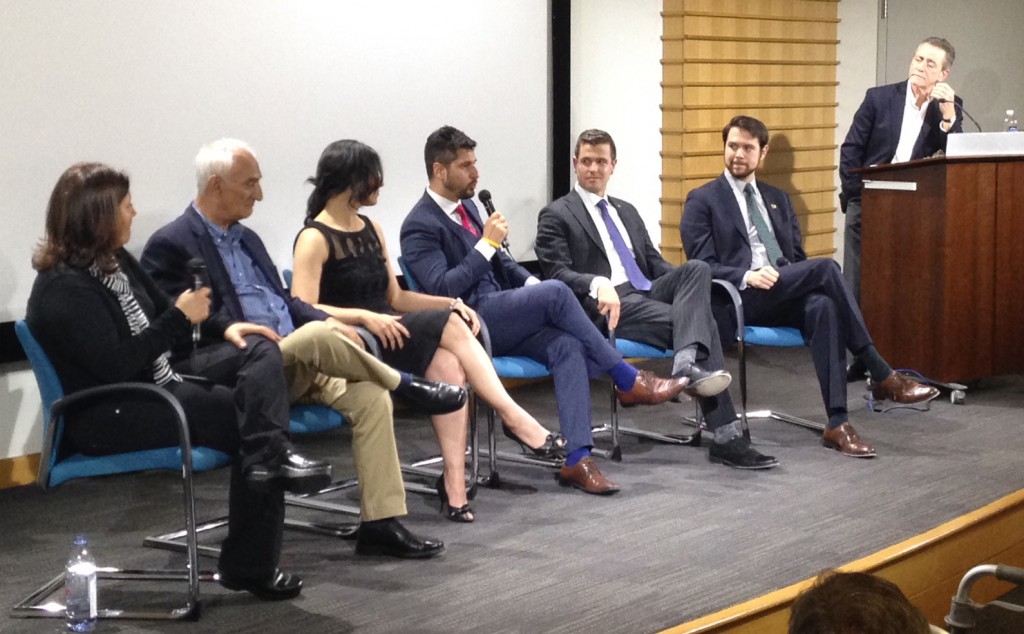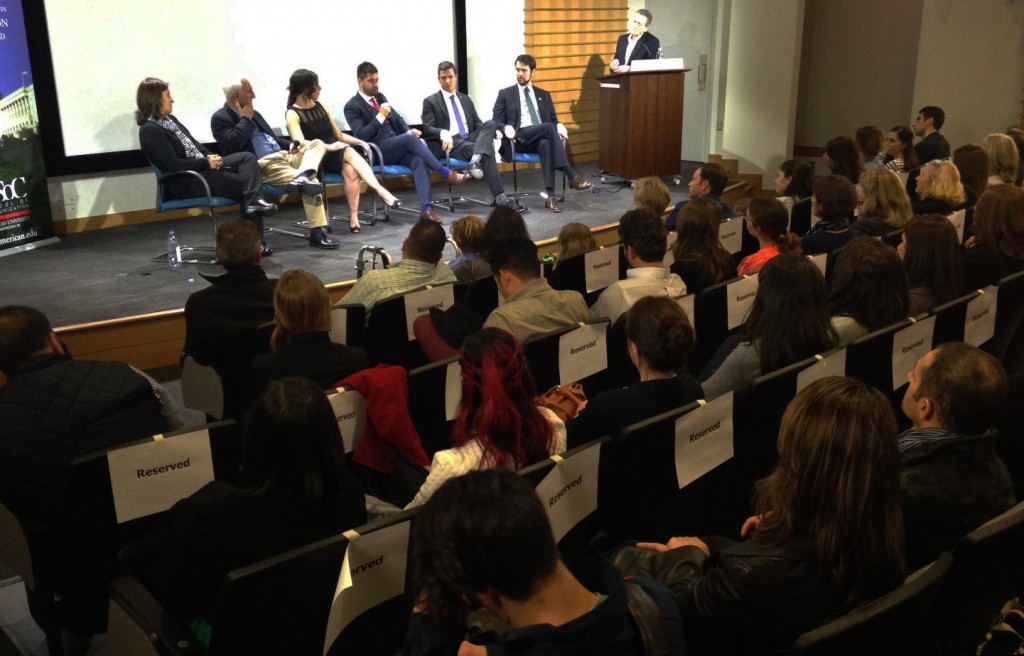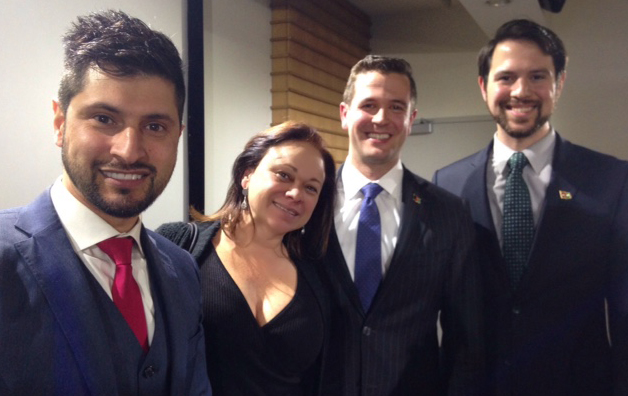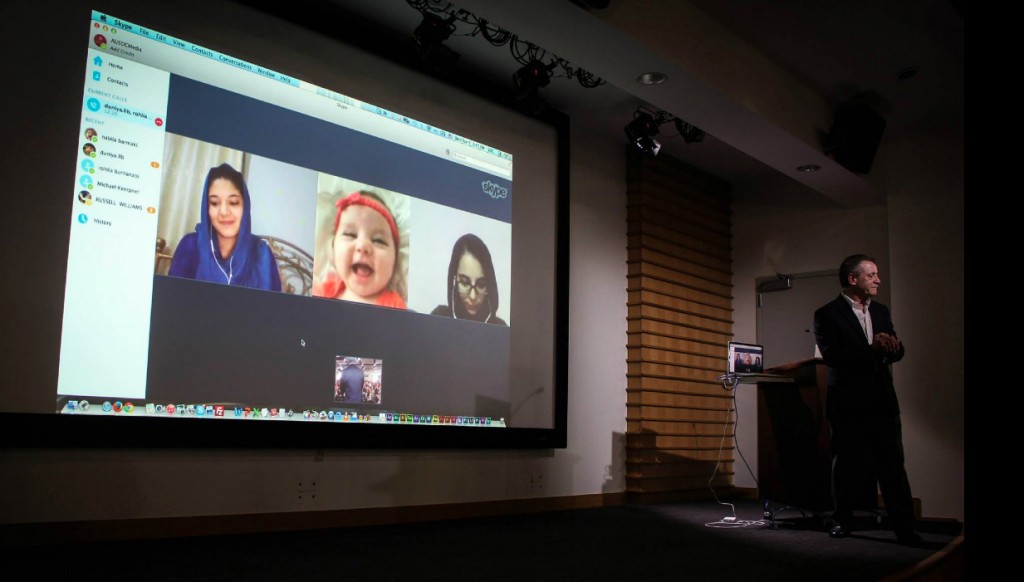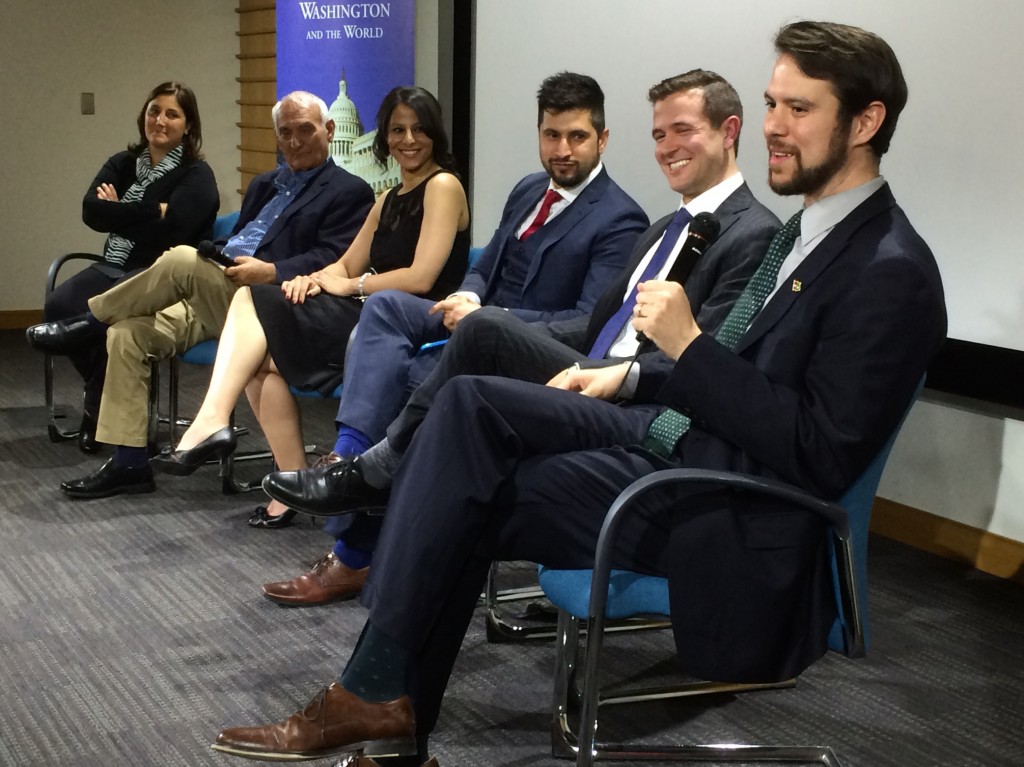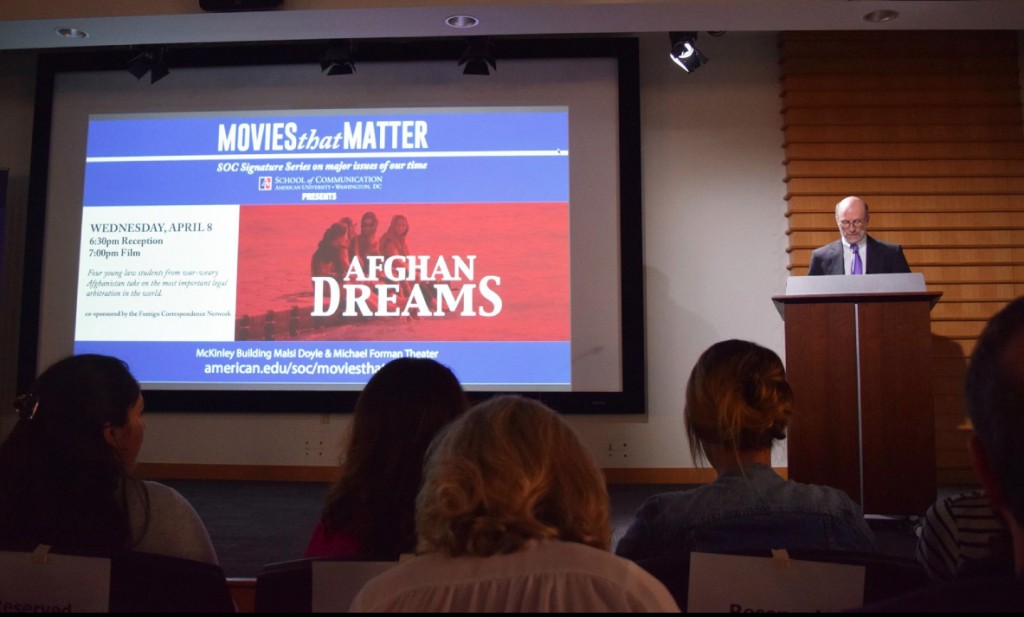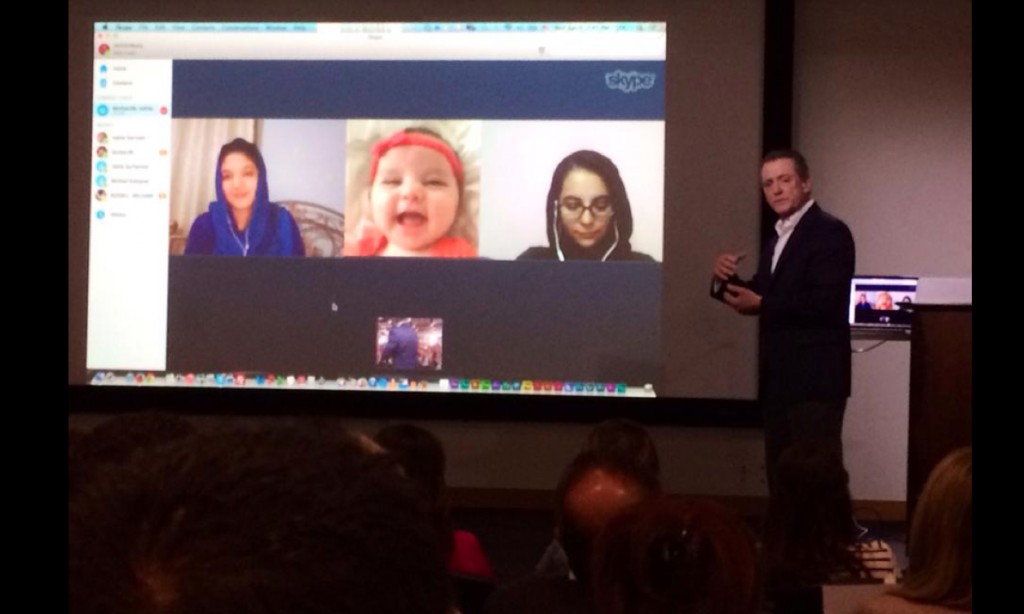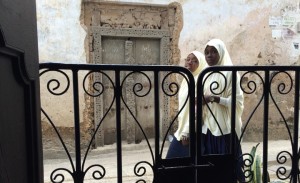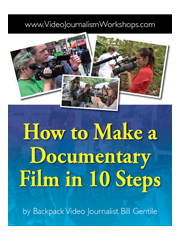ACCRA, Ghana, 27 November 2015 — Our Backpack Video Journalism Workshop marked the end of the beginning of a new style of development reporting in Ghana. This is a group shot on the final day of the event.
This is our Ghana Team, minus SAA, who is behind her camera making this photo! To your right is Sara Stealy, the Press Attache at the U.S. Embassy that funded the workshop. To your left is Ama Boateng, of the African Centre for Development Reporting (ACEDEV), which sponsored the five-day event.
I look forward to keeping in touch with all of my new friends and colleagues at the ACEDEV, as they use technology and their newly acquired skills to report on the important issues of our time. Good luck to all.
